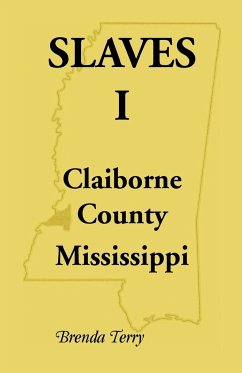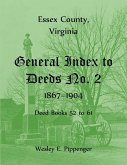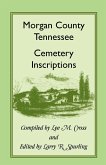By 1860, in the state of Mississippi, there were 353,899 whites and 437,404 African Americans, of which less than 1,000 were free. Claiborne County, located in the southwestern part of the state on the Mississippi River, was an integral piece of the Cotton Kingdom. Ms. Terry has made every effort to be as comprehensive as possible, providing information not only on Claiborne County's African American slaves and their descendants but on the European American slave owners and their descendants as well. The author presents the data in a clear, concise, easy-to-read format. The first chapter consists of names gathered from Will Book A, 1804-1833. The names are sequenced by the slave's first name and also includes the names of the owners, the date the will was written, the owner's heirs, each heir's relationship to the owner, the page number that the will appears on in Will Book A, and the slave's spouse, children and siblings, if applicable. Some entries also have notes concerning further bequeathals, names of the will trustees, etc. Chapter Two consists of data compiled from the Port Gibson Property List, 1846-1858, and documents the slave's first name, the owner's names (both husband and wife), the slave's age, the date the information was recorded, and the slave's parents and siblings, if applicable. Additional notes here, again, concern further bequeathals, names of the will trustees, etc. The final chapter focuses on information found in Certificates for Slave Sales, 1858-1860. Here the author found slaves who had been purchased in Missouri, Kentucky, and Tennessee who were then taken to Claiborne County to be sold. The information consists of the slave's name, the trader, the city or county and state from which the slave was purchased, and the slave's age (when provided); some entries include the name of the owner. The book also contains a list of witnesses to wills found in Will Book A and an every-name index that allows the reader to search for names by the owner's and relative's last name in addition to the slave's and relative's first names. The author is a family historian who has traced her family roots back 175 years.
Hinweis: Dieser Artikel kann nur an eine deutsche Lieferadresse ausgeliefert werden.
Hinweis: Dieser Artikel kann nur an eine deutsche Lieferadresse ausgeliefert werden.








